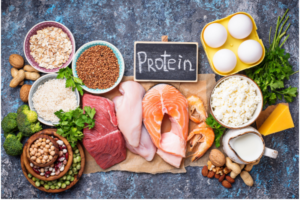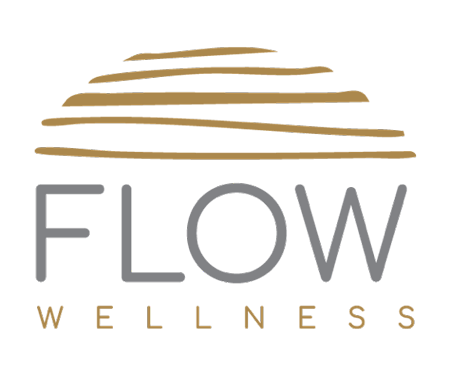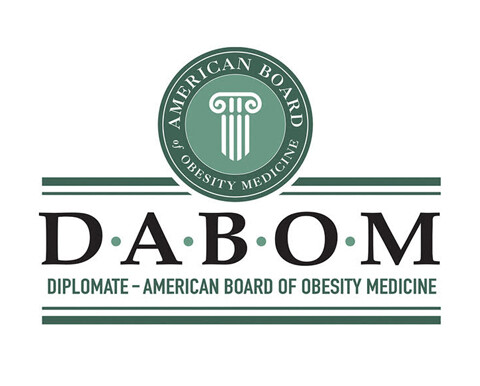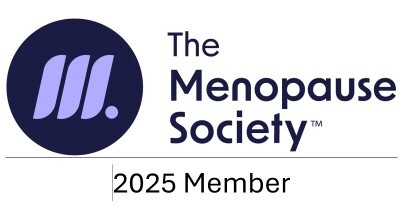Dietary protein plays a crucial role in maintaining healthy muscle mass loss and supporting weight loss. Protein-rich foods tend to be more filling than carbohydrates. Increasing protein intake will reduce hunger, cravings, and therefore usually overall calorie consumption. Additionally, breaking down protein is more work for your body than digesting fats and carbs, so you’ll actually burn more calories just by replacing carbohydrate or fat calories with protein calories.
If you’re trying to lose weight through calorie restriction, your body may turn to muscle tissue to make up for the energy deficit if protein consumption is too low. Adequate protein intake helps preserve muscle mass, ensuring that the weight you lose comes more from fat rather than muscle. As you age, you naturally lose muscle mass in a process called sarcopenia. Adequate protein intake can help slow down this age-related muscle loss, maintaining your strength and mobility.

How much protein should I eat per day?
The best rule-of-thumb is to aim for 0.8 – 1 gram of protein per pound of body weight per day. You might be surprised how much protein this is.
Where can I get more protein?
Animal-Based Protein Sources:
– Lean cuts of beef, pork, lamb, and game meats are rich in protein. Examples include chicken breast, turkey, and lean ground meat.
– Fish is a high-quality source of protein, with options like salmon, tuna, trout, and cod being popular choices.
– Seafood: Shellfish like shrimp, crab, lobster, and mollusks (e.g., clams, mussels) are excellent protein sources.
– Dairy products such as milk, yogurt, and cheese contain protein, with Greek yogurt being particularly protein-rich.
– Eggs are a versatile and protein-packed food, especially the egg whites.
– Processed Meats: While they can be high in protein, processed meats like sausages, bacon, and deli meats should be consumed in moderation due potential risks of additives they contain.
Plant-Based Protein Sources:
– Legumes: Beans, lentils, chickpeas, and peas are excellent sources of plant-based protein. They are also high in fiber and other nutrients.
– Tofu and Tempeh: These soy-based products are rich in protein and are often used as meat substitutes.
– Nuts and Seeds: Almonds, walnuts, chia seeds, flaxseeds, and sunflower seeds are protein-rich options. Nut butter (e.g., peanut butter, almond butter) also contains large amounts of protein.
– Grains: Some grains, like quinoa, farro, and bulgur, are higher in protein compared to others. Whole grains generally contain more protein than refined grains, but these contain a fair amount of carbohydrates so should be consumed sparingly.
– Vegetables: While not as protein-dense as other sources, vegetables like broccoli, spinach, and Brussels sprouts still contribute to your daily protein intake.
– Plant-Based Meat Substitutes: There are various meat substitutes made from plants, such as veggie burgers, tofu dogs, and plant-based ground meat, which are designed to mimic the taste and texture of meat while providing protein.
Dairy and Dairy Alternatives:
– Animal milks (e.g., cow, goat, sheep) contain high amounts of protein and can be used to mix with protein powders for additional protein boost.
– Soy Milk: Fortified soy milk is a good source of plant-based protein.
– Plant-Based Yogurts: Some dairy-free yogurts are made from soy, almond, or coconut and can be a source of protein.
Processed Foods: Many processed foods, such as protein bars and protein shakes, are formulated to be high in protein. However, it’s essential to choose options with minimal added sugars and artificial additives.
What else should I know?
Expect some constipation. Many foods high in protein contain little dietary fiber. Most patients will experience some degree of constipation when trying to increase their protein intake. It is important to be sure to stay active, well hydrated, and consume plenty of fiber (ideally from vegetables, seeds, and nuts) when increasing your protein to avoid becoming overly constipated.
Many patients will find they cannot reach the goal protein without using some sort of protein powder/supplement. These protein powders can be significantly constipating. Consider adding psyllium, flax seeds, or other fiber supplement to your protein shakes to reduce the constipating effect of protein powders.
If still struggling with constipation, polyethylene glycol powder (Miralax) can be used occasionally according to package instructions.
Try increasing your daily protein intake to help your weight loss journey!




